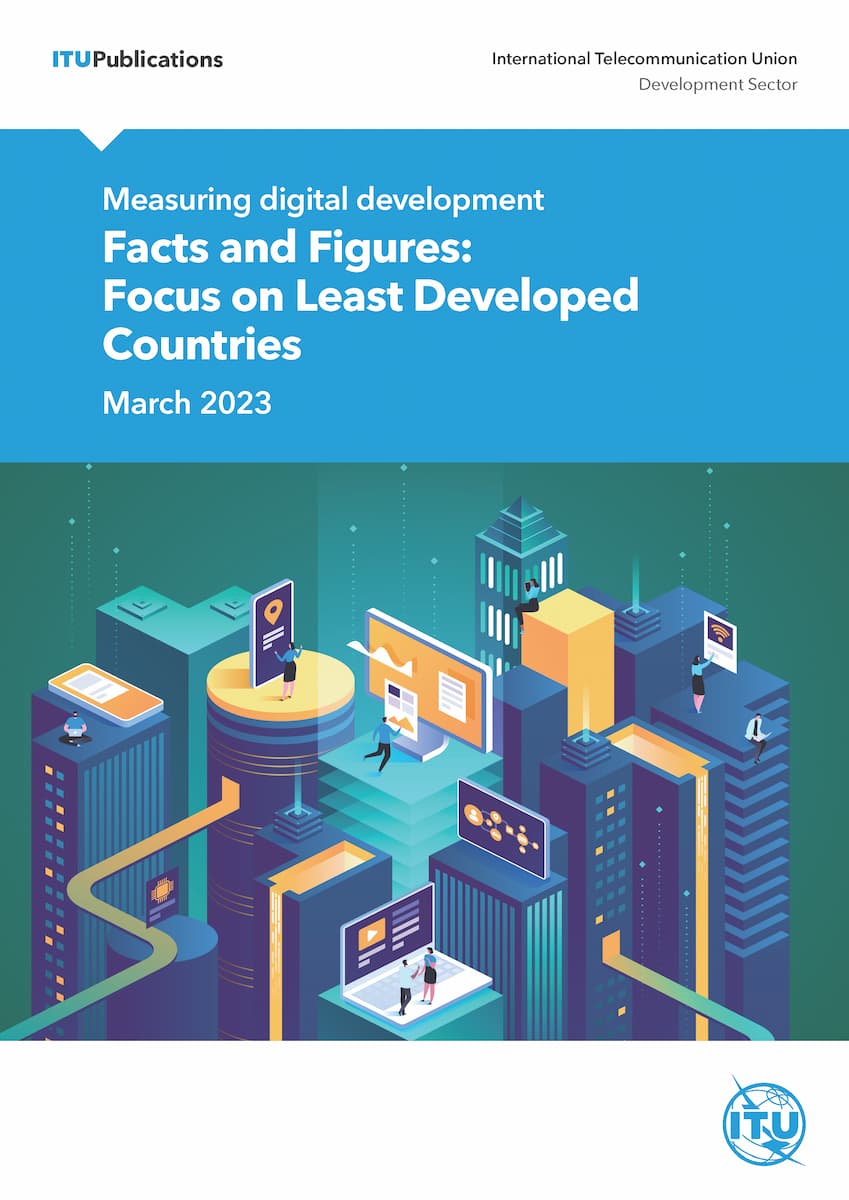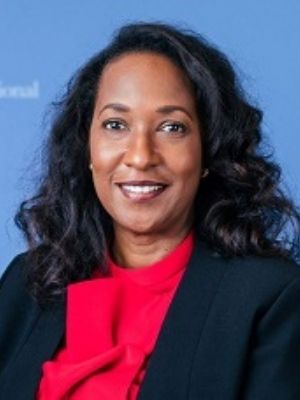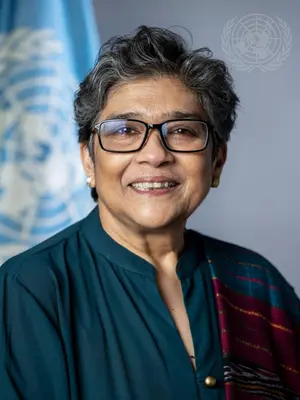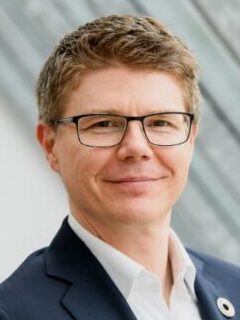LDC5: From potential to prosperity
The Fifth United Nations Conference on the Least Developed Countries (LDC5), organized by UN-OHRLLS, is a once-in-a-decade opportunity to accelerate sustainable development in the places where international assistance is needed the most – and to tap the full potential of the Least Developed Countries helping them make progress on the road to prosperity. Digital technologies are becoming increasingly important for the economic growth and international competitiveness of countries’ economies as well as being a vector of prosperity for the local populations. In consequence, they represent for LDCs as a potential source that can increase material prosperity and combat poverty.
Facts and Figures: Focus on Least Developed Countries
Broadband Commission Open Statement
The digital connectivity divide separating the globe’s least developed countries (LDCs) from the world as a whole shows no sign of narrowing. In fact, it is widening on key factors, according to ITU’s Facts and Figures: Focus on Least Developed Countries.
While the share of the population in LDCs using the Internet has increased since 2011 from 4 per cent to 36 per cent, about two-thirds of the LDC population remains offline. LDCs also still face numerous barriers to meaningful connectivity, including lack of infrastructure, affordability, and skills.
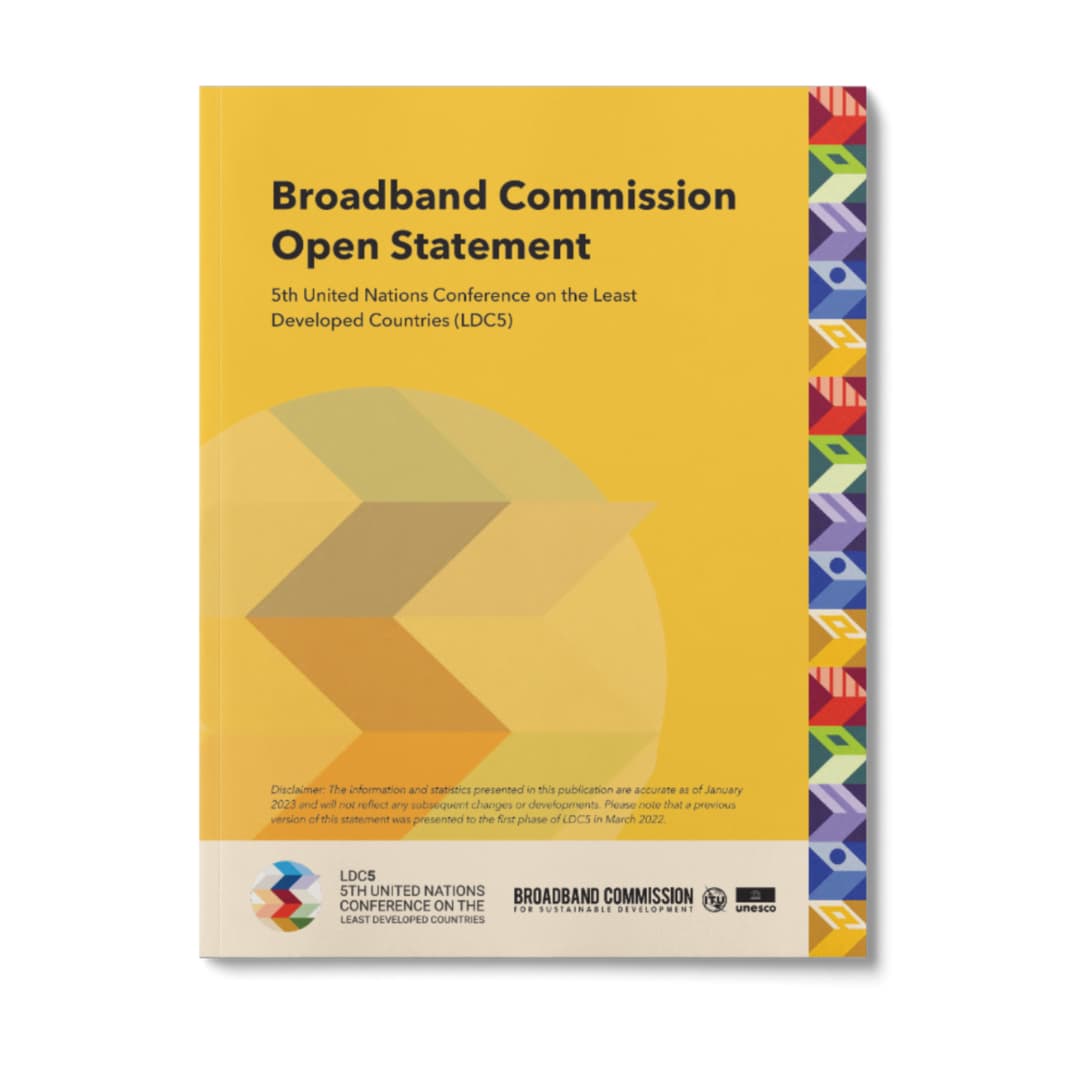
The Broadband Commission has issued an Open Statement to the LDC5, underscoring the vital role that digital inclusion will play in the sustainable development of LDCs.
The statement calls upon governments, the private sector, NGOs and civil society to join forces for the LDC5 Conference in making concrete pledges and putting forward initiatives towards connectivity through existing platforms, including the ITU Partner2Connect Digital Coalition and the Digital for Development Hub (D4D Hub)
The path to prosperity for the world’s least developed countries runs through digital development. This special edition of ITU’s Facts and Figures highlights the challenges confronting LDCs and should help strengthen commitments between the least developed countries and their development partners.
Ms. Doreen Bodgan-Martin, Broadband Commission Co-Vice Chair and Secretary-General of the ITU
Broadband Commission participation
Partner2Connect: Accelerating the DOHA Program of Action through partnerships for meaningful connectivity and digital transformation
This meeting will convene high-profile members of the P2C (Partner 2 Connect) pledgers’ community to explore those commitments that support the implementation of the Doha Programme of Action. It will also feature announcements of new pledges and partnerships and provide networking opportunities to foster cross-sector collaboration in LDCs.
Participating Commissioners:
LDC5 Private Sector Forum
The Private Sector Forum, co-organized by the UN-OHRLLS and Microsoft, in partnership with the Qatar Chamber of Commerce & Industry, will provide opportunities to build transformative partnerships and to mobilise long-term investment and finance to deliver on those ambitions.
Participating Commissioners:
LDC5 WSIS (World Summit on the Information Society) side event
The theme of the session is: WSIS Action Lines and ICTs for building back better and accelerating the achievement of the SDGs in LDCs.
5 March
Investing in culture and creative economy for sustainable development and peace building in the LDCs, UNESCO
LDCs’ Access to Finance – towards best practice and improved processes, OHRLLS
6 March
Harnessing Digitalization and Innovation to Leave No One Behind, UNDP
Addressing food insecurity by building resilient agri-food systems in the Least Developed Countries, OHRLLS
7 March
How to leverage E-commerce to support the economic ambitions of LDCs, ITC
Innovative solutions for building resilience to natural hazards in the LDCs, UNESCO
8 March
The contribution of the implementation of the Doha Programme of Action for the LDCs to the enjoyment of human rights, UN Women
An Online University for the LDCs, OHRLLS
Frontier Tech Leaders Progamme Launch, UNDP
Financing solutions for the new 10-Year LDC Programme of Action, ITC
9 March
Active, free and meaningful participation of Youth in development and in the implementation of the Doha Programme of Action, OHCHR
The future of the multilteral trading system and how to enhance global trading rules to benefit LDCs, ITC
Relevant Resources
With more than 30 groups to date, the Broadband Commission’s Working Groups convene industry leaders, government officials and civil society to address prominent issues affecting broadband access, affordability and use. The following Working Groups have released policy recommendations for expanding connectivity in LDCs.
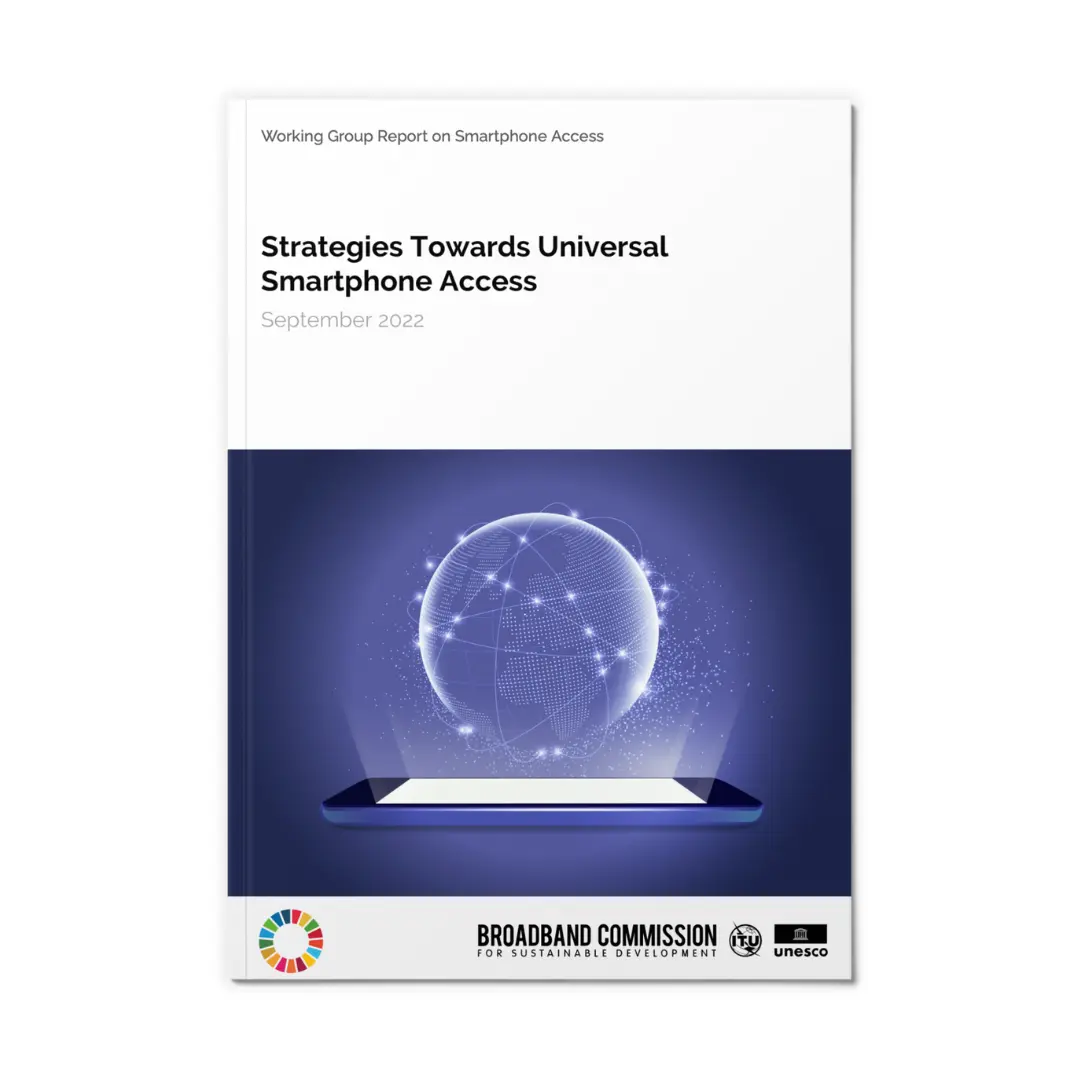 The Working Group on Smartphone Access represents the first multi-stakeholder analysis to outline actionable recommendations to address smartphone access challenges, particularly in the least developed countries (LDCs), landlocked developing countries (LLDCs) and small island developing states (SIDS).
The Working Group on Smartphone Access represents the first multi-stakeholder analysis to outline actionable recommendations to address smartphone access challenges, particularly in the least developed countries (LDCs), landlocked developing countries (LLDCs) and small island developing states (SIDS).
The Working Group was co-chaired by Rabab Fatima, UN High Representative of UN-OHRLLS, Nick Read, former CEO of Vodafone Group and Houlin Zhao, former Secretary General of the ITU, and recommends three key interventions to make smartphones accessible to all.
Currently, the Working Group’s Action Taskforce is working on completing a five-point action plan resulting from its findings.
 The Working Group on Broadband for All: A Digital Moonshot Infrastructure for Africa engaged key ICT industry partners to estimate the investment needs and prepare a roadmap to help countries and development actors coordinate, accelerate and prioritize their efforts to improve digital infrastructure in Africa.
The Working Group on Broadband for All: A Digital Moonshot Infrastructure for Africa engaged key ICT industry partners to estimate the investment needs and prepare a roadmap to help countries and development actors coordinate, accelerate and prioritize their efforts to improve digital infrastructure in Africa.
Chaired by Ms. Kristalina Georgieva, former CEO of The World Bank, the Working Group proposed a number of policy recommendations to accomplish a digital moonshot of coordinated efforts to ensure Africans have universal and affordable access to ICTs.
These recommendations set out to: accelerate universal access to affordable broadband, guarantee essential skills for all to enable citizens to thrive in the digital age, improve the business environment, and accelerate the adoption of e-services.
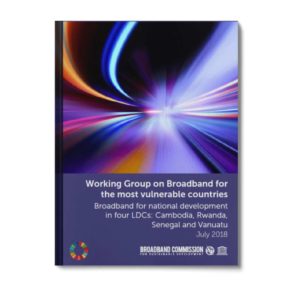 The Working Group on Broadband for the Most Vulnerable Countries reviewed the experiences of leveraging broadband infrastructure for development in four Least Developed Countries (LDCs): Cambodia, Rwanda, Senegal and Vanuatu and identified recommendations to leverage global partnerships in support of increased access to broadband services in these countries.
The Working Group on Broadband for the Most Vulnerable Countries reviewed the experiences of leveraging broadband infrastructure for development in four Least Developed Countries (LDCs): Cambodia, Rwanda, Senegal and Vanuatu and identified recommendations to leverage global partnerships in support of increased access to broadband services in these countries.
The Working Group was chaired by Ms. Fekitamoeloa Katoa ‘Utoikamanu, former Under-Secretary-General and High Representative for the LDCs, LLDCs and SIDs at UN-OHRLLS.
Overlapping crises are putting the LDCs on a cliff edge. A plan to ensure they are not left behind by the 2030 Agenda is more urgent than ever. We must take this opportunity and make LDC5 a landmark and truly transformative event.
Ms. Rabab Fatima, Broadband Commissioner and Secretary-General of LDC5


